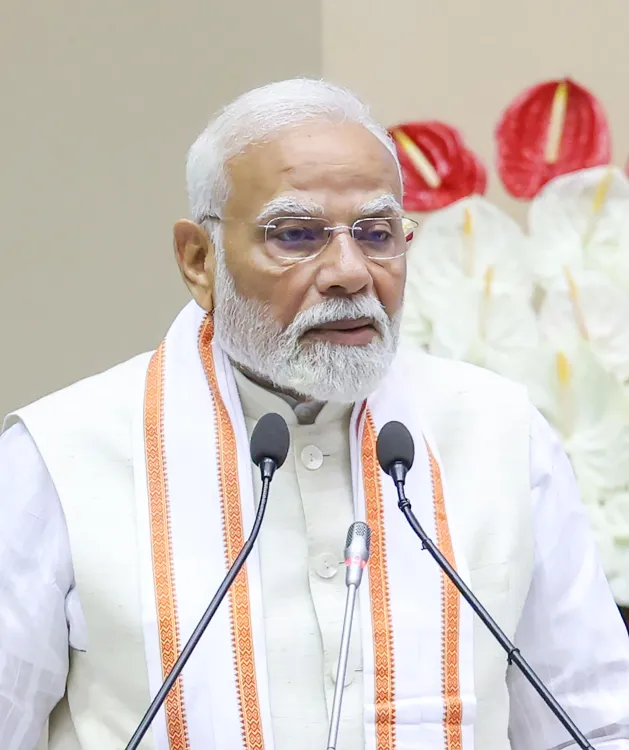What Do the Sacrifices of Hazrat Imam Hussain Teach Us About Righteousness?

Synopsis
Key Takeaways
- Imam Hussain's sacrifices highlight the importance of righteousness.
- Ashoora serves as a reminder of the struggle against tyranny.
- Millions gather to honor the legacy of Imam Hussain.
- The event resonates with both Shia and Sunni Muslims.
- The story of Karbala continues to inspire resilience.
New Delhi, July 6 (NationPress) Prime Minister Narendra Modi remarked that the sacrifices rendered by Hazrat Imam Hussain (AS) highlight his unwavering dedication to righteousness.
In a message on his X account on Sunday, PM Modi noted how Imam Hussain serves as a beacon for individuals to stand by the truth amidst challenges.
“The sacrifices made by Hazrat Imam Hussain (AS) accentuate his resolve towards righteousness. He motivates individuals to uphold truth even in difficult times,” the Prime Minister stated on X. At present, he is in Rio De Janeiro, Brazil, participating in the 17th BRICS Summit and conducting a state visit.
The solemn day of Ashoora-e-Muharram is a significant moment in Islamic history, commemorating the martyrdom of Hazrat Imam Hussain, the esteemed grandson of the Prophet Muhammad, along with his companions. This day epitomizes valor, sacrifice, and resilience against oppression.
Millions of people gather to pay tribute to those who sacrificed their lives for truth, righteousness, and justice during the Battle of Karbala.
The 10th of Muharram, known as Ashura, is observed throughout the nation on Sunday. Muharram marks the first month of the Islamic calendar, with Shia Muslims globally engaging in public mourning.
In Kashmir, the Shia community participated in a Muharram procession on the traditional route in the city on Friday (July 4) to mark the eighth day of mourning. Additional processions are scheduled for Sunday to commemorate the tenth day.
The 10th day of Muharram in the Islamic calendar signifies the martyrdom of Imam Hussain, who was slain by the forces of King Yazid in 680 AD on the banks of the Euphrates River in Iraq at Karbala. The besieged family of Imam Hussain, along with his companions, was deprived of drinking water even while positioned at the Euphrates. Even the six-month-old Ali Asghar was denied water by Yazid's army. Imam Hussain chose to sacrifice himself and his family rather than yield to the dominance of evil over the truth.
Shia Muslims honor this event through processions and chest-beating, yet the mourning of Muharram resonates with both Shia and Sunni Muslims alike.










